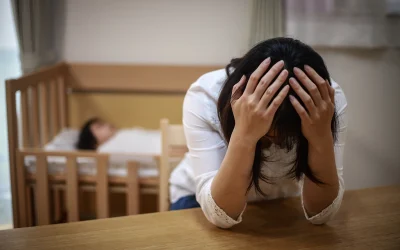Supporting a Loved One with Depression
What is Depression?
Finding a therapist to treat depression can be tasking. Depression, formally Major Depressive Disorder, is a common diagnosis with approximately 280 million people in the world suffering from it. People who are diagnosed with depression may experience:
- Depressed mood
- Loss if interest in once pleasurable activities
- Changes in appetite
- Trouble sleeping
- Irritability or angry outburst
- Loss of energy
- Feelings of guilt or worthlessness
- Difficulty concentrating
- Self-harming behaviors
- Thoughts about death or suicide
Symptoms of Major Depressive Disorder (MDD) are usually severe enough to cause noticeable problems in day-to-day activities, such as work, school, social activities, or within relationships. Teens and children with MDD may look more irritated or angry than sad.
How Can I Help My Loved One with Depression?
Watching someone you love experience these symptoms can be heartbreaking, frustrating and confusing. You may want to help but be unsure how to show your support or maybe your attempts help have been rejected by your loved one.
Starting the conversation can be difficult you can try opening with statements such as:
- “I’ve noticed you’ve been having a hard time lately. How are you feeling?”
- “Recently, I have noticed some differences in you and wondered how you are doing.”
It is important to understand that your loved one may feel uncomfortable talking about how they’re feeling and may not be open to advice. That is why it is important to engage in active listening:
- Ask questions to get more information instead of assuming you understand what they mean. Be truly curious and try to check your judgements at the door.
- Validate their feelings. Even if you don’t fully agree or understand.
- Show empathy and interest with your body language by using eye contact and a calm voice tone, not getting distracted by your phone, and giving them your full attention.
Your loved one may know that therapy can help, but it can be daunting trying to find a therapist. Offer to help them review potential therapists or other sources of support. You can help your friend or family member with depression list things to ask potential therapists or things they want to mention in their first session. It is important to encourage your loved one to continue therapy even when they feel hopeless. Hopelessness is a symptom of MDD too. Again, work to keep those judgements at the door and support with compassion and understanding. If understanding is difficult, consult with a professional to learn more about their illness.
If you believe a loved one may be considering suicide, it is important that you do not wait to talk to them about your concerns. Many people feel uncomfortable bringing up the topic, but asking directly is recommended for someone who may be considering suicide. Talking openly about suicidal thoughts and feelings can save a person’s life. If you’re concerned, be sure to seek professional help.
If you or someone you know is struggling or in crisis, help is available. Call or text 988 or chat 988lifeline.org. For less urgent matters, you can reach out to a trusted therapist in your area. Please note that this blog post is for educational and informational purposes only and does not substitute professional medical advice. No material within this blogpost is intended to be a substitute for a therapeutic relationship, medical advice, diagnosis, or treatment. Always seek the advice of your physician, personal mental health provider, or other qualified health care provider with any questions you may have regarding a medical condition, diagnosis, or treatment.



